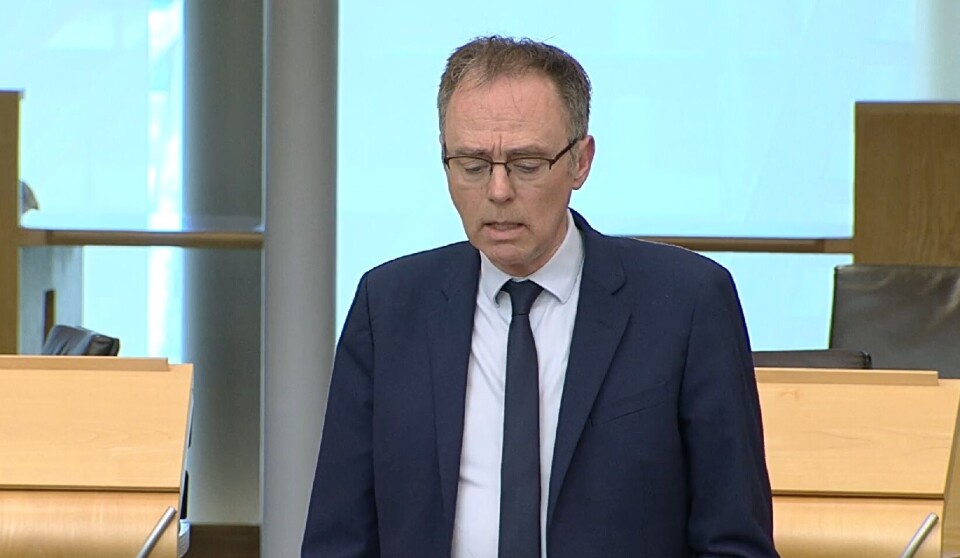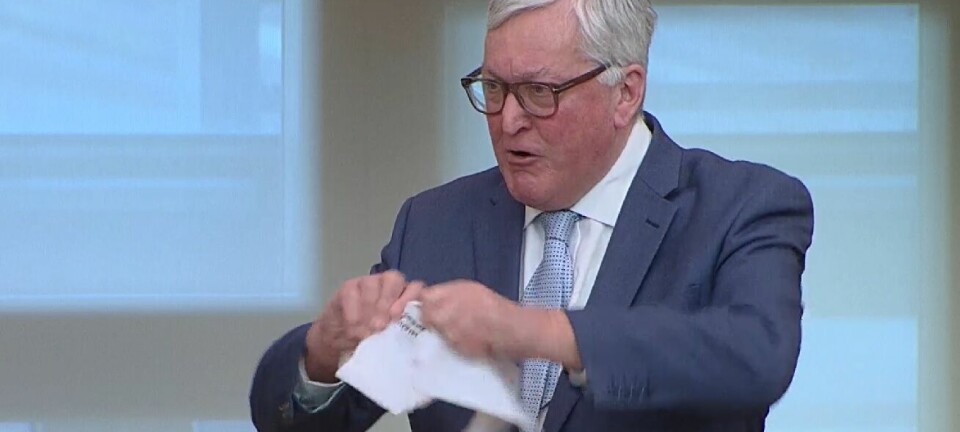
Scottish Government stays on course for HPMAs
Parliamentary bid to force re-think of ban on fishing and aquaculture is sunk
The Scottish Government has defeated an attempt to force a re-think of its proposal to make at least 10% of the nation’s seas into Highly Protected Marine Areas (HPMAs) where fishing, fish and shellfish farming, and seaweed farming would not be allowed.
A government amendment neutralising a motion by Scottish Conservative MSP Rachael Hamilton was carried by 61 votes to 55 in the Scottish Parliament this afternoon, despite three SNP MSPs rebelling and voting against the amendment and three abstaining. The three SNP rebels were Fergus Ewing, Kate Forbes, and Alasdair Allan, who represent coastal constituencies. The three SNP MSPs who abstained were Annabelle Ewing (Cowdenbeath), former leadership contender Ash Regan (Edinburgh Eastern), and Christine Grahame ( Midlothian South, Tweeddale and Lauderdale).
Borders MSP Hamilton wanted Parliament to agree that HPMAs had no scientific basis, or proper analysis of any ecological justification, and to order the SNP/Green Party government to fundamentally reconsider its HPMA proposals and the 2026 target for their introduction.
However, the amendment by Mairi McAllan, Cabinet Secretary for Net Zero and Just Transition replaced Hamilton’s criticism with words supporting the government’s policy, although it also recognised “considerable strength of feeling on Highly Protected Marine Areas”.
Everyone against it
During an hour-long debate at Holyrood, Western Isles SNP MSP Alasdair Allan said he had never had to confront anything quite like the issue if HPMAs before, “a policy which, to the best of my recollection, literally every single person in my island community who has offered me a view is strongly opposed”.
He added: “Even when I was showing a local primary school around the Parliament recently, the first thing the kids wanted to ask me about was HPMAs. That is a measure of where things have now reached, in the Western Isles at any rate.”
Allan said the problem with HPMAs was that while they would only affect 10% of sea area, communities would not know for two years which 10% that would be.
“In the meantime, every coastal community in Scotland, particularly those on the west coast, not unreasonably has fears that it is going to be them. The prospect of a virtually total ban on all fishing activities in any one of our most fragile communities would in fact disproportionately affect some of the very forms of fishing which have the smallest environmental impact. In areas fished by smaller vessels like many of those in my own constituency, there is little realistic prospect of established fishing businesses, or indeed aquaculture or fish processing businesses, finding somewhere else to go to nearby.
Depth of opposition
“I know that the scenario I describe there is not what the government seeks. The very encouraging tone struck by the First Minister and other ministers in recent weeks indicating that HPMAs will not be imposed on unwilling communities is very helpful and much welcomed locally.
“The government amendment today I would also acknowledge goes some way towards recognising the fears that exist, although I regret almost certainly not yet far enough for my constituents.
“I realise why the government has to wait for the scrutiny of the consultation responses before it can commit to action but I can see locally what the government must themselves increasingly now suspect, and that is the sheer depth of opposition that exists in many island communities to the proposals as they presently stand.
“After much thought therefore I am going to register those concerns in a very reluctant vote against the government’s own amendment.”
Other SNP members, including Rural Affairs Secretary Mairi
Gougeon, whose portfolio includes aquaculture, chose to vote with their party.
Strength of feeling
Today’s debate was the second on HPMAs within two days.
In a statement issued after today’s debate, Tavish Scott, chief executive of trade body Salmon Scotland, said: “Following this week’s parliamentary debates, the government can be in no doubt about the strength of feeling about proposed HPMAs which have simply not been thought through.
“Rarely has one policy united so many different sectors and communities across the Highlands and islands in opposition.
“Ministers must do two things: keep the promise not to impose HPMAs on any community opposed to them; and bring forward revised proposals based on scientific evidence.
“Scottish salmon is a global success story – that is why the sector spent last week at the world’s largest seafood show in Barcelona as part of a Team Scotland approach that sells to many overseas markets.
“Exporting salmon is at the heart of the government’s sustainable blue economy vision, and this cannot be jeopardised by missing the opportunity of aquaculture investment here in Scotland.”
























































